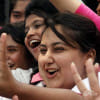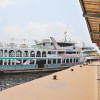A school curriculum to nurture thoughtful learners

As an interim step, the education authorities under the interim government have decided to revert to the curriculum introduced in 2012. Textbooks for the school year 2025 have been printed according to the old syllabus. The old system of secondary-level three-way arts-science-commerce separation starting from class 9, which had been deferred to class 11, has now been restored. Secondary-level public examinations have been conducted according to a curtailed old syllabus (with some tests cancelled due to the turmoil).
In the wake of the political change, the default position of the government has been to discard the work on the new curriculum initiated by the previous regime, which had been under heavy criticism from educationists, teachers, and parents since its inception in 2021. Obviously, there was no time to recast the curriculum and the learning content for the academic year 2025. However, the idea of rejecting every past curricular initiative without weighing its merits cannot be considered rational. For instance, reverting to separate streams from class 9 is an ill-considered move, according to many educationists. Most countries have moved away from compelling youngsters to choose their future irrevocably at such an early age.
Work on curriculum and learning content undertaken in 2025 is likely to be reflected in the academic year 2026 and beyond. At this point, it appears that the focus will be on assessing students' learning and preparing and supporting teachers to achieve the learning objectives in the classroom—two areas identified as most problematic in the reform efforts of the past government.
Experience with advanced educational systems indicates that the critical issue with the school curriculum is not its content—what is written in the curriculum—but the ancillary and supportive actions and provisions that ensure the curriculum is actually applied in the classroom and that students acquire the skills and competencies they are expected to gain. This is where our schools have failed so far, and this remains the challenge.
It is hoped that an education commission will be formed to consider objectives and priorities in education and to address the challenges holistically. The Ministry of Primary and Mass Education (MOPME) has proceeded to name a nine-member committee, headed by this writer, to recommend quality improvement measures in primary and non-formal education. Crucial curriculum-related questions have arisen in the committee's deliberations, as noted below.
1) Since we are not doing a good job of teaching foundational literacy and numeracy skills in primary schools, how can much greater emphasis than at present be given to Bangla reading and writing and basic arithmetic in the learning content, learning time, student assessment, and teacher training? Should the current six subjects in primary school and the tendency to treat them equally be reconsidered? Can much of the content of subjects other than Bangla and math be incorporated into supplementary reading and writing rather than as separate subjects?
2) We have observed that the rigid and uniform classroom routine of 35-minute periods does not allow lessons to be conducted and completed properly, making classroom teaching a mechanical exercise. Can there be flexibility for schools to organise their daily and weekly teaching schedules to allow varying time for lessons with active learner participation, while maintaining total annual time for subjects within curricular guidelines?
3) Given the inadequate total learning time in schools (with 80 percent operating double shifts), the importance of foundational skills in Bangla and math in the early grades, and the shortage of qualified English teachers, should Bangla and math be prioritised in the first three grades, and English language lessons deferred to class 4, with proper English teaching emphasised in the secondary grades? At present, neither English nor Bangla is taught effectively.
4) Should physical exercise, games, and co-curricular activities be made essential (rather than optional) components of daily primary school instruction? These are crucial for children's small and large motor skills, mental development, and social growth.
5) Can textbooks be made more attractive, properly bound, and printed on high-quality paper with colourful illustrations so they can be used for at least three years by making them the property of the school, lent to students for the year, and taken back at the end of the year (as is done in many developed countries)? This would save money, spare millions of trees, and prevent the annual scramble to print and distribute millions of books.
6) Multi-year textbooks require that textbooks are not changed annually due to current political events and demands. Is it necessary to include materials in school textbooks, especially at the primary level, that stem from contemporary political and social demands which may be more suitable for older students? Can children's textbooks focus on neutral and foundational content that successive governments will not be inclined to alter?
7) There is much confusion regarding student learning assessment and examinations. Some wrongly advocate for the return of the Primary Education Completion Examination (PECE) and scholarship exams. Can guidelines and manuals be provided for ongoing school-based (formative) and periodic (summative) assessments for each grade? Can assessment tools, including multiple sets of sample periodic exam questions, be made available online for subject and grade teachers? It is surely the wrong message to parents that there is no assessment or test in grades one to three, as testing is an integral part of teaching and learning. What should be the stance on system assessment (large sample surveys of grade-wise competencies, such as ASER in India or simplified National Student Assessments in Bangladesh)?
Other questions remain, such as transforming the National Curriculum and Textbook Board (NCTB) into a truly professional body with skilled personnel capable of curriculum and learning content development, research, and evaluation; separating the technical tasks of curriculum and textbook development from the printing and distribution of textbooks and learning materials; and ensuring coordination with the directorates for teacher training and student assessment, as well as the education boards. These are broader educational system issues, rather than just primary education, to be considered by a commission on the education sector.
The goal surely is to make the curriculum a guide to help teachers and schools nurture our children to become thoughtful and capable learners.
Dr Manzoor Ahmed is professor emeritus at Brac University, chair of Bangladesh ECD Network (BEN) and adviser of Campaign for Popular Education (CAMPE).
The views expressed in this article are the author's own.
Follow The Daily Star Opinion on Facebook for the latest opinions, commentaries, and analyses by experts and professionals. To contribute your article or letter to The Daily Star Opinion, see our submission guidelines.

 For all latest news, follow The Daily Star's Google News channel.
For all latest news, follow The Daily Star's Google News channel. 










Comments